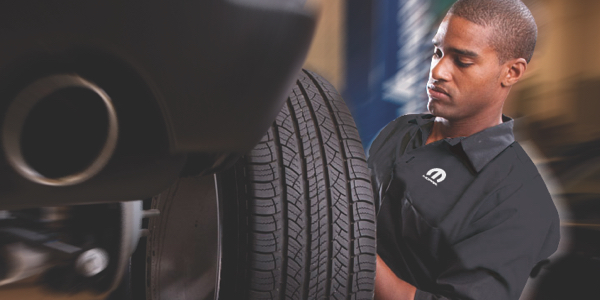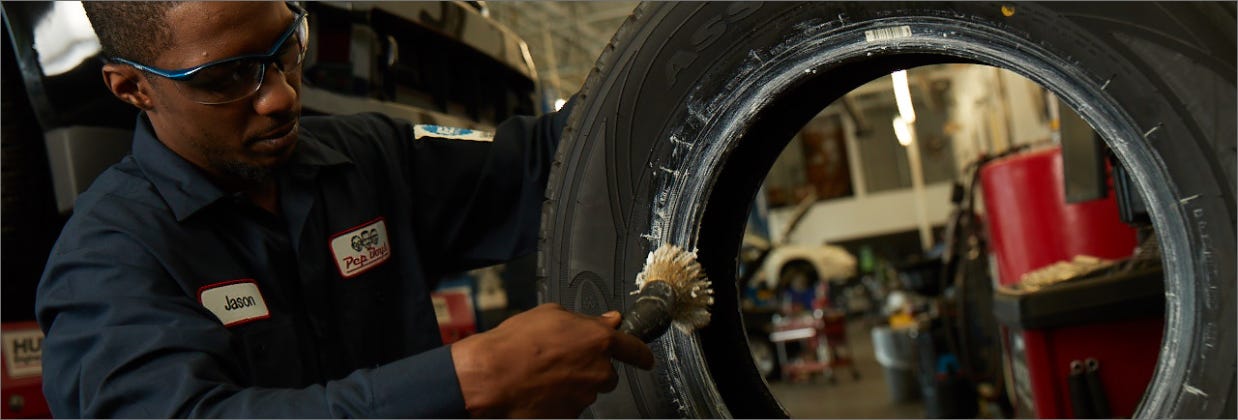Morris Tire: Exceptional Tire Solutions for All Automobiles
Morris Tire: Exceptional Tire Solutions for All Automobiles
Blog Article
The Web Link In Between Tire Solution and Gas Performance
Performance in fuel usage is a vital worry for automobile owners looking for to enhance their driving experience. Among the numerous elements that affect gas performance, tire service attracts attention as a crucial component that commonly goes neglected. The detailed relationship between tire upkeep and gas economy is a testimony to the intricate functions of a car. By comprehending just how tire care directly affects the effectiveness of your lorry, you can open a realm of possibilities that not just enhance performance yet also contribute to set you back savings over time.
Value of Proper Tire Rising Cost Of Living
Proper tire inflation is a crucial consider optimizing gas performance and ensuring optimal vehicle efficiency. When tires are underinflated, it produces much more rolling resistance, creating the engine to function more challenging and shed more fuel to keep the very same speed. On the other hand, overinflated tires can bring about a harsher trip, uneven tire wear, and decreased traction. To discover the recommended tire stress for your automobile, describe the owner's guidebook or the sticker label located on the motorist's side door jamb.
Keeping the appropriate tire stress not just boosts fuel efficiency however also improves driving security. Regularly inspecting and changing tire stress, particularly before long journeys, is an easy yet effective means to maximize your car's gas economic climate and guarantee a smooth driving experience.
Impact of Tire Tread Depth
Keeping the suggested tire stress is necessary for ideal vehicle performance and fuel performance; similarly, the tread deepness of your tires plays a crucial role in ensuring safety and security and grip on the road. Tire tread depth directly influences the capacity of your tires to grip the road surface, particularly in wet or unsafe problems. As tires use down, their tread deepness reductions, impacting their ability to channel water away and keep correct call with the road. The suggested minimum step deepness is commonly 2/32 of an inch, but also for boosted safety and security and performance, lots of experts suggest transforming tires before they reach this factor. Correct walk deepness not just makes sure better handling and stopping yet also adds to sustain effectiveness by decreasing moving resistance. Regularly evaluating your tire tread deepness and replacing tires when required is a straightforward yet reliable means to advertise both safety and security and gas effectiveness when driving.
Role of Wheel Alignment in Performance
Making certain accurate wheel placement is crucial for maximizing automobile effectiveness and making the most of gas economic climate. Proper wheel placement entails adjusting the angles of the wheels to supplier specs, guaranteeing that they are alongside each other and perpendicular to the ground. When wheels are misaligned, it can cause irregular tire wear, enhanced moving resistance, and lowered gas performance.

In addition, exact wheel positioning can additionally boost managing and security, decreasing the amount of energy required to maneuver the vehicle (tire tracks morris il). By decreasing unneeded rubbing and drag, proper wheel positioning plays a critical role in improving total vehicle effectiveness and fuel economy. Routine wheel alignment checks and adjustments are necessary for keeping optimal efficiency and optimizing fuel cost savings
Connection Between Tire Upkeep and MPG
An important facet visit this page of maximizing fuel performance in lorries is the upkeep of tires and their straight influence on miles per gallon (MPG) Proper tire maintenance plays a critical duty in taking full advantage of gas economy. On the other hand, overinflated tires reduce the get in touch with patch with the road, leading to irregular wear and decreased gas performance.
In addition, tire tread depth also influences fuel performance. Damaged footsteps lower traction, especially in damp problems, compeling the engine to apply more power to preserve speed. This boosted resistance lead to greater gas usage. By making sure tires have ample walk depth, chauffeurs can boost both security and fuel economic climate.
Essentially, appropriate tire upkeep, consisting of monitoring tire pressure and walk depth, is directly linked to attaining optimum MPG. By incorporating regular tire assessments and upkeep right you can try these out into a car treatment regimen, chauffeurs can not only prolong tire life yet additionally improve gas performance, inevitably saving cash and lowering ecological impact.

Tips for Fuel-Efficient Tire Treatment
Provided the essential partnership in between tire upkeep and fuel performance, executing efficient methods for enhancing tire care is key to enhancing total vehicle efficiency. To guarantee fuel-efficient tire care, normal tire pressure checks are necessary. Appropriately inflated tires lower rolling resistance, enhancing fuel performance and prolonging tire lifespan. In addition, keeping appropriate wheel placement and harmonizing assists disperse weight uniformly, preventing uneven tire wear and optimizing gas usage. Rotating tires at recommended periods promotes also step wear, improving gas efficiency by guaranteeing all tires add equally to lorry efficiency. It is likewise important to inspect tires for indicators of damages, such as cuts, punctures, or bulges, as these problems can influence fuel performance and general safety and security. Lastly, picking tires with reduced rolling resistance can considerably enhance gas economic climate. By integrating these fuel-efficient tire care tips right into a regular maintenance timetable, vehicle drivers can optimize fuel performance, reduce operating costs, and prolong the life of their tires.
Verdict
By regularly preserving tires and following fuel-efficient tire care pointers, vehicle drivers can optimize their car's efficiency and decrease fuel Full Report consumption. It is important to focus on tire upkeep to not only conserve cash on gas prices but additionally to advertise general automobile effectiveness.
Report this page